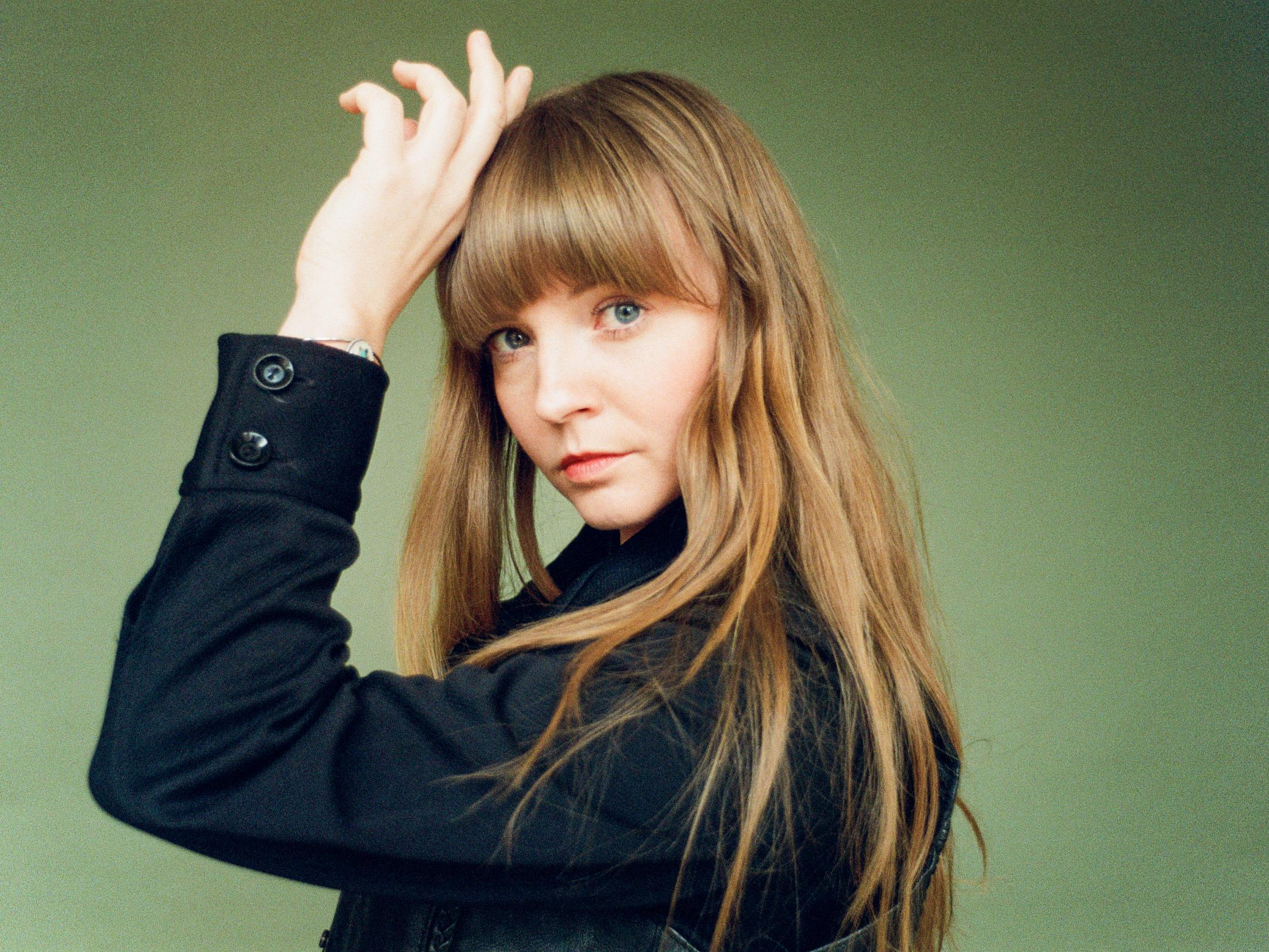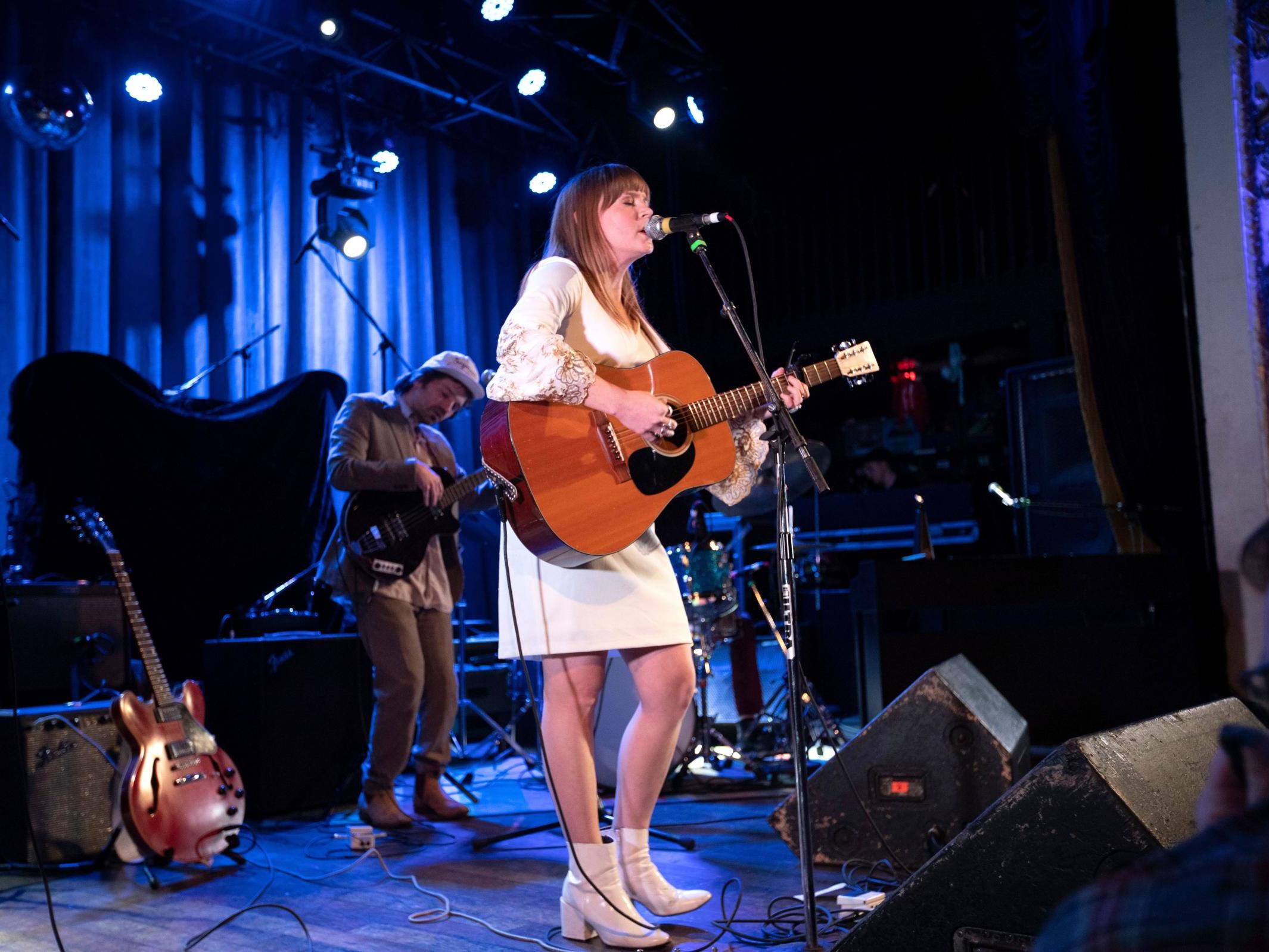Courtney Marie Andrews: ‘I was embarrassed by my vulnerability’
The country-folk singer couldn’t bear to listen to the songs she’d written about her break-up but, she tells Alexandra Pollard, ‘they were really me in that moment’. She talks about mental illness, inherited trauma and why folk is the original punk rock


Your support helps us to tell the story
From reproductive rights to climate change to Big Tech, The Independent is on the ground when the story is developing. Whether it's investigating the financials of Elon Musk's pro-Trump PAC or producing our latest documentary, 'The A Word', which shines a light on the American women fighting for reproductive rights, we know how important it is to parse out the facts from the messaging.
At such a critical moment in US history, we need reporters on the ground. Your donation allows us to keep sending journalists to speak to both sides of the story.
The Independent is trusted by Americans across the entire political spectrum. And unlike many other quality news outlets, we choose not to lock Americans out of our reporting and analysis with paywalls. We believe quality journalism should be available to everyone, paid for by those who can afford it.
Your support makes all the difference.When Courtney Marie Andrews’ nine-year relationship ended, a few hours into 2019, the American musician got busy being heartbroken. She drove to the Smoky Mountains just to drive back. She danced with a Portuguese boxer and cried on his shoulder in a Fado cafe. She read Mary Oliver poetry. She didn’t listen to music – “it hurt too much” – but she did write it. And she was repulsed by every song she came out with.
“I was just so disgusted with the way I felt that I couldn’t listen back to them,” says the 29-year-old, speaking over the phone from Nashville, Tennessee. “I was embarrassed to play them for people. I was embarrassed by my vulnerability. Maybe I didn’t like who I was in those songs. But the thing is that they were really me in that moment.”
Every one of those songs made it on to Andrews’ new album, Old Flowers, a rich country-folk record full of catharsis and contradiction. Written alone late at night – in Arizona, Lisbon, Nashville and London – it feels designed to be listened to that way, too.
Loneliness and longing crop up a lot. “I feel like those are always subjects I find myself coming back to,” says Andrews. Since well before her 2016 breakthrough album Honest Life, she has wrestled with existential restlessness, her Americana-tinged guitar ballads warm but world-weary, and imbued with such specificity of time, place and emotion that you might as well be there with her: in the dive bar as the jukebox plays “a sad country song for all the ugly Americans” (“How Quickly Your Heart Mends”, from Honest Life); in the diner in Ohio where she’s sitting alone “just waiting for the bar to open” (Honest Life’s “Table for One”); or on the “wrong side of the tracks” in Buffalo, New York, stranded by a blizzard (“Two Cold Nights in Buffalo”, from 2018’s May Your Kindness Remain).
Andrews has been touring since she was 15, and there’s a transience to the music she has produced since – eight albums, though thanks to an early fallout with a record label, three of them aren’t widely available – both physically and emotionally. But on Old Flowers, a work of brutal honesty, she has grown direct. “I’m not your object to break/ You can’t hold me like I’m yours,” she sings on the superb title track, whose instruments are played so firmly it’s as if even the piano is ridding itself of something. On “Together or Alone”, which sporadically warps like old vinyl with the help of a Mellotron, she sings, “I hope that you find what it is you’re looking for/ I’m just proud to have loved you, enough to ask for more.” “Carnival Dream” recalls having the same dream as her ex, before she wonders aloud if she’ll ever love again – or if she even should.
“I talk a lot about beginning and endings on this record,” says Andrews, “and I think it’s because the centre bit is too much to sum up and it’s also the part that’s just for us.” She was with her ex for almost her entire twenties, but by the end, it had become “a complicated mess too hard to untangle”. This record, she says, “is one long letter” to him – though she’s not sure if this album will give the relationship the ending it deserves. “I don’t know if anything ever could.”
She was particularly “ashamed”, she says, of “Guilty”, a song in which she falls in love with someone new before she’s ready for the emotional responsibility. “I know I’d hurt you too/ Get bored, find someone new/ I cannot give my love to you, when I am guilty.” If it seems like she’s laying a lot at her own feet, she sees that as a good thing. Better than the alternative, at least, which she facetiously embraces on the steel-guitar country ballad “It Must Be Someone Else’s Fault”. “No, I cannot be to blame for the story of this pain/ Oh, it must be someone else’s fault,” she sings, before adding, “Feels like I’ve gone crazy/ Like the women in my family usually do.”
“I have a lot of mental illness in my family,” says Andrews of that line. “When I wrote it, it felt so true that I couldn’t believe I hadn’t had it in a song already.” Before Andrews was born, her grandmother died by suicide. “I feel like if somebody would have just told her that you’re OK despite your weaknesses, and if there was a use in blaming yourself and a comfort in that, then maybe things would have been different. Women are often made to be the victims, but it’s just about owning our own strengths and also owning our own weaknesses.”
She is a believer in inherited trauma – that the pain of our ancestors, even the ones we never met, is passed down to us. “I always have this strange feeling that I know my grandmother,” she says, “and that I feel so much of her pain without even having said hello.”
Enjoy unlimited access to 100 million ad-free songs and podcasts with Amazon Music
Sign up now for a 4 month free trial (3 months for non-Prime members)
Enjoy unlimited access to 100 million ad-free songs and podcasts with Amazon Music
Sign up now for a 4 month free trial (3 months for non-Prime members)
Andrews was raised by her mother in Phoenix, Arizona, a sprawling metropolitan city with a backdrop of red, dusty mountains – though to the teenage Andrews, it felt more like “a big dirt pit in the middle of nowhere”. When she was a young, DIY musician, Phoenix was the last place she wanted to be. “The desert’s sort of like an island and I felt like I needed to get out.” At high school, she was an outsider – until she met a group of girls who were kindred spirits when she was 14, and formed a feminist punk band called Massacre in a Miniskirt. The riot grrrl band Bikini Kill were a big inspiration. “I just loved that they had no fear. It was all about expressing yourself as a woman.”

Eventually, she picked up an acoustic guitar and drifted away from that punk sound, leaving home at the age of 16 to go busking across America, releasing a handful of self-produced independent albums as well as singing backup for the American rock band Jimmy Eat World (and for about 40 other bands besides). Still, that punk ethos remained. “I realised how punk folk is in its own way,” she says. “Woody Guthrie is, like, the OG punk. I think that ethos carried on into how I treat my art – that ‘go for it’ attitude, and not needing a whole lot of fluff to cover up what’s really important, and that’s the music.”
A few years ago, Andrews told an interviewer that as a woman, she’d had to work “twice as hard, just to prove people wrong”. Does she feel like she’s done that? “I think I’ve come to this place where I don’t feel the need to prove anything to anyone except for myself,” she says. “It’s more about trying to prove my new creative self to my old creative self. Can I make this better? Can I get closer to the truth by writing today?”
Andrews has clung to music like a life raft. In the dying days of her relationship, she shut herself off from the things and people she loved. “I just stopped connecting with people and put walls up and became very guarded and let a lot of friendships go,” she says. “I built a wall so big that nobody could break it down.” But she never stopped writing songs. “Music is something that nobody can ever take away. It’s always been my security blanket. I would never be fooled into letting that go.”
Old Flowers is out on Friday
Join our commenting forum
Join thought-provoking conversations, follow other Independent readers and see their replies
Comments